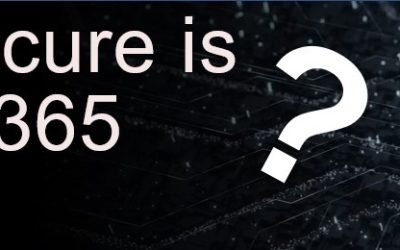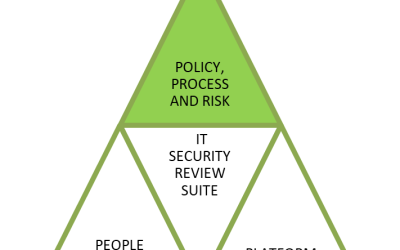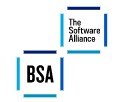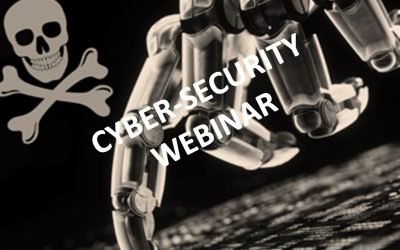If you don’t where it is, you can’t protect it.
Do you know where ALL your organisation’s data is – not physically, but on which web and cloud services?
Here’s the problem. If you don’t where it is, then you can’t protect it. The secondary problem is finding out, because not everyone in your organisation will be onboard. It is common for people to sign up to web services because they offer something useful that helps them do their job.
They sign up using their email address and creating a password. There is the first headache – how does anyone track what has been signed up to across your organisation, let alone who has access to it? If that person leaves, no one will change the account credentials if they don’t know about it, but your ex-colleague still has access.
Secondly, what data do they upload? Is that data that you have a legal or moral responsibility for?
There’s nothing noble about Nobelium.
This isn’t theory – it’s real. USAID is a pretty important US organisation – promoting democracy and human rights around the world. Turns out, someone there was using a well-known email database tool called Constant Contact. But their account wasn’t well protected. Worse still, their account had a huge mailing set up, and of course, it had all the official USAID templates.
So, these Nobelium people, allegedly a Russian state-sponsored hacker group, compromised the Constant Contact account and sent a bulletin out. The bulletin contained malware that allowed the hackers to take command and control over victims computers. Ironically the fake email alleged interference in the US federal elections.

So, what can you do?
The first step is knowing what SaaS tools your people are using. We call this SHADOW IT and it is inevitable. Rather than stopping it, the job IT has is to identify it and manage it. The second step is to secure those platforms. That’s why our KARE for Security S2 plan contains a useful tool to help you identify what services your people are using.
Refer : What We Know About The Apparent Russian Hack Exploiting USAID : NPR
Gotcha!
"GROUP-IB" are a Singapore-based cyber-security provider. They go deep into the cyber-crime sphere and it's paid off. After 30+ attacks, and over $US30M stolen, "OPERA1ER" have been caught! They describe a bad actor who, from 2019, had used the same MO over and...
Look before you click
The latest trend in phishing is pictures! It might be a thumb nail of a picture - a cute pet, interesting garden scene, or some other curiosity. It might be in the form of advertisement. Maybe it is offering a time sensitive, and urgent deal. It might even be a...
REWATCH Cyber Lessons from the field.
What can we learn from recent NZ cyber-events? What is real and what is hyperbole? Scroll down for the MFA revelation - it will surprise you!Introducing Campbell McKenzie from Incident Response, the team called in after cyber-events to help clean up and manage the...
REWATCH Did you know that, on average, 1.2 million Microsoft accounts get compromised every month?
Did you know that, on average, 1.2 million Microsoft accounts get compromised every month? According to Microsoft, 99.9% of hacked accounts didn't use MFA, and only 11% of all accounts have MFA enabled. The average cost of a ransomware security breach is $4.62...
What level of cyber-security is right for my organisation?
The world is changing. Your company's cyber security is increasingly under threat and the costs of mitigation are often unwelcome. The first question organisations need to ask is whether they are exposed, and to what level. All the available data from sources like...
How many of these 10 layers of cyber protection do you use?
"A cybercriminal only has to be lucky once, while a defender has to be lucky every minute of every day.” - Combating Ransomware - A Comprehensive Framework for Action: Key Recommendations from the Ransomware Task Force. The message we hear from governance boards over...
The scammers are closing in on us.
Hacks don’t just happen to other people. The hackers are targeting all of us, every day. Every day, we have to defend them successfully. They only have to be successful onceWe all read about stories in the newspaper and there might be a sense of smugness that we...
What do YOU need to know about Juice Jacking?
You might get more than you bargained for. That sense of relief when you see a public USB charging point might be misplaced. There are increasing numbers of public USB charging points around. From aircraft and buses to fast-food restaurants, cafes, shopping malls and...
Is your licensing legit? Don’t be scammed
Don't get fooled! One of the great advantages of subscription software is that the licensing is easier to verify. The days of people copying license codes are over. That makes this scam even more interesting, simply because the product they refer to is subscription...
Webinar Replay : Updating what is ‘reasonable’ to protect your organisation from cyber-crime.
Cyber-security gets harder, so we make it easier. Much as the heading may sound 'double-dutch', it isn't. Simply, the levels of protection that are 'reasonable' to protect your organisation have changed. We need to do more, and at Kinetics we know that...










